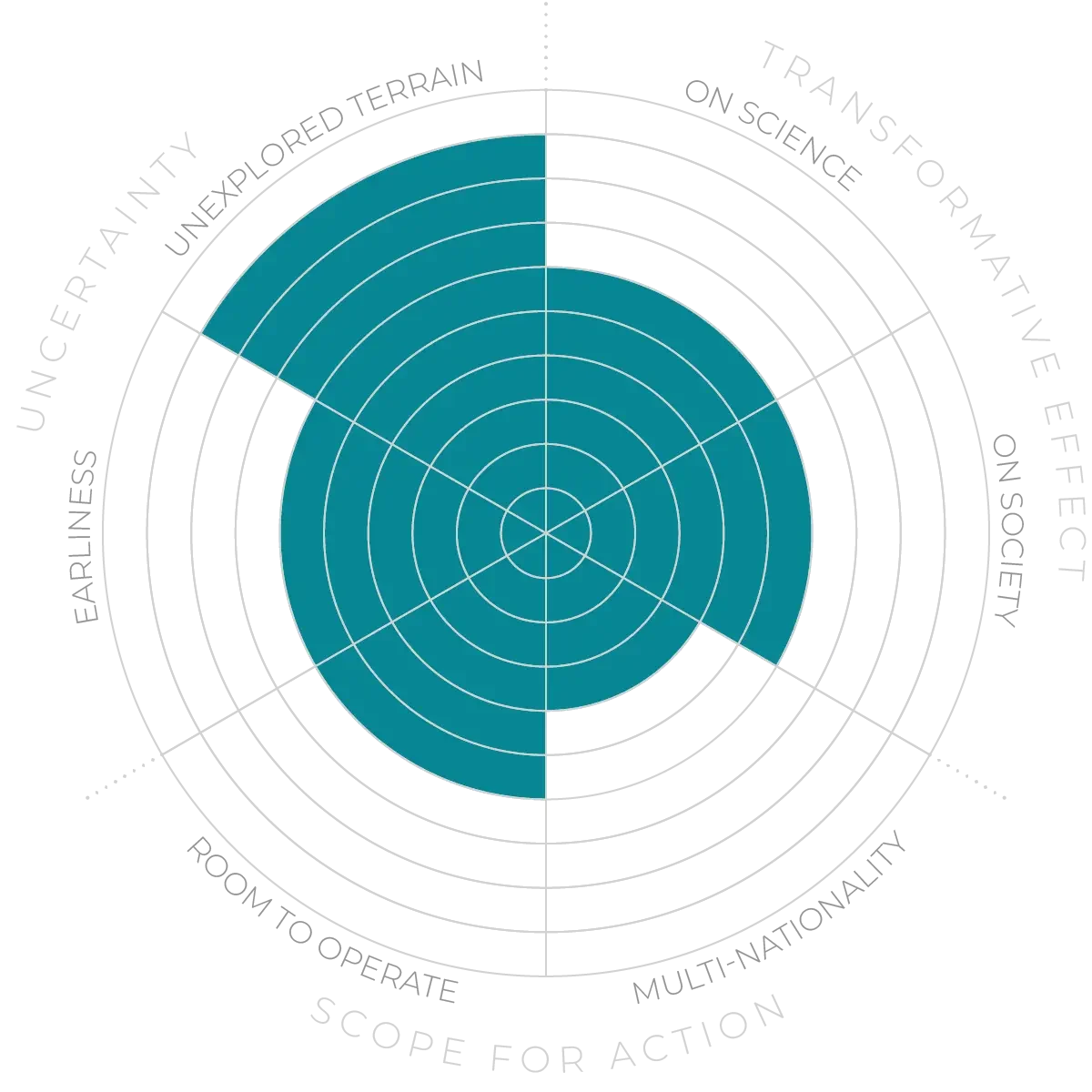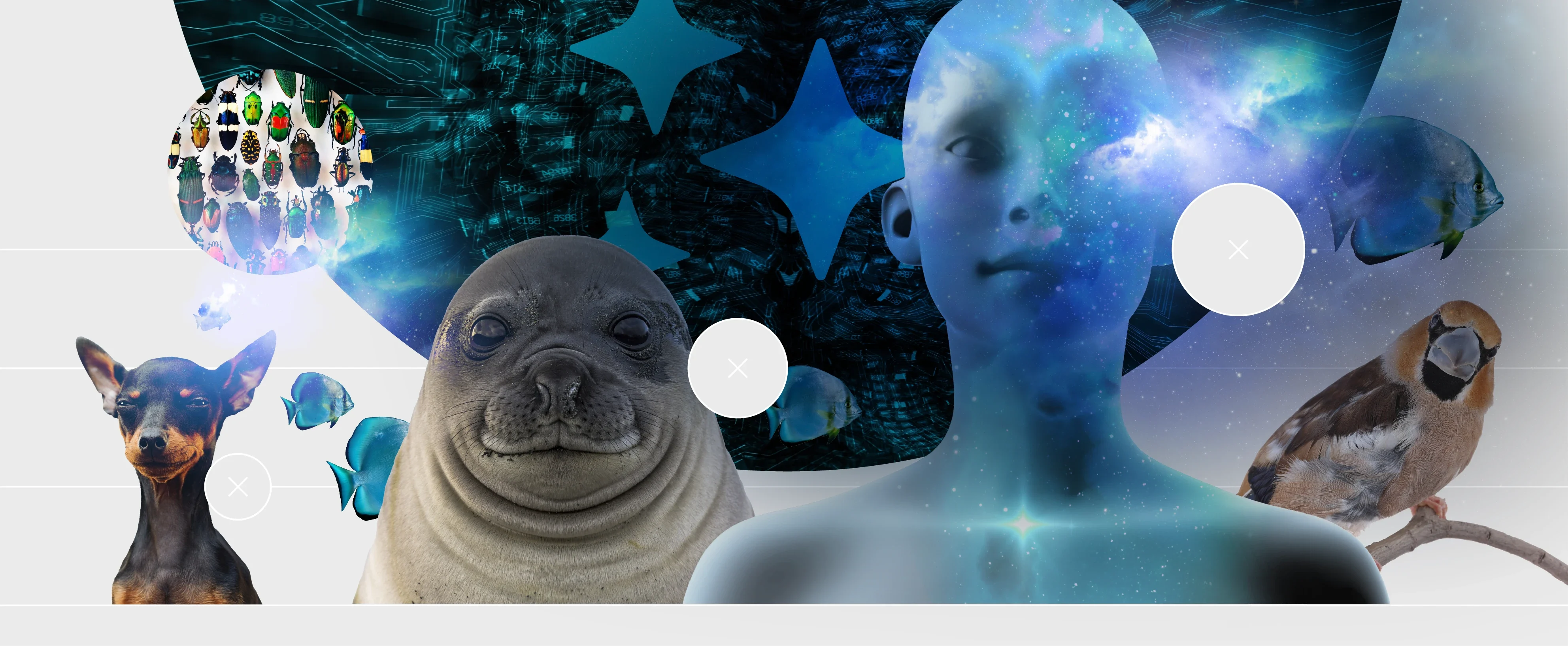Future Horizons:
10-yearhorizon
Non-human consciousness sheds light on human consciousness
Animal consciousness is measured and assessed by a wide-ranging set of tests developed for the assessment of human consciousness (and adapted for non-verbal responders based on assessment techniques developed for human infants). Machines that display many characteristics associated with human consciousness are probed as tools for understanding how consciousness might arise in humans — in particular, for ascertaining whether embodiment plays a critical role.
25-yearhorizon
Hybrid consciousness improves learning
Interesting advances are being made in the study of machine consciousness.20 Researchers are making progress in developing methods to assess AI systems for consciousness21 and investigating machine implementations of neuroscientific theories of consciousness.22 Efforts to understand whether machine consciousness is possible, and what might constitute it, provide an important anchor for our understanding of consciousness itself.23
In animals, the issue of consciousness is more immediate, pertaining to issues of moral status, and with ramifications for agriculture and food economics. A cohort of researchers have suggested there is “strong scientific support for attributions of conscious experience to other mammals and to birds”, and that “empirical evidence indicates at least a realistic possibility of conscious experience in all vertebrates (including reptiles, amphibians, and fishes) and many invertebrates (including, at minimum, cephalopod mollusks, decapod crustaceans, and insects)”.24 This is a controversial claim, but one that highlights the lack of agreement about the nature and extent of consciousness in the natural world. Further exploration of the issue can only improve our understanding of the phenomenon, although funding for this work is limited.
There is also a growing awareness of the possibility that some rudimentary form of consciousness could arise in brain organoids, which are proto-organs grown in vitro from human brain tissue.25 However, despite the potential ubiquity of non-human conscious experience, caution is needed due to the possibility that very complex cognitive abilities can unfold without conscious experience.26
Non-human consciousness - Anticipation Scores
The Anticipation Potential of a research field is determined by the capacity for impactful action in the present, considering possible future transformative breakthroughs in a field over a 25-year outlook. A field with a high Anticipation Potential, therefore, combines the potential range of future transformative possibilities engendered by a research area with a wide field of opportunities for action in the present. We asked researchers in the field to anticipate:
- The uncertainty related to future science breakthroughs in the field
- The transformative effect anticipated breakthroughs may have on research and society
- The scope for action in the present in relation to anticipated breakthroughs.
This chart represents a summary of their responses to each of these elements, which when combined, provide the Anticipation Potential for the topic. See methodology for more information.



